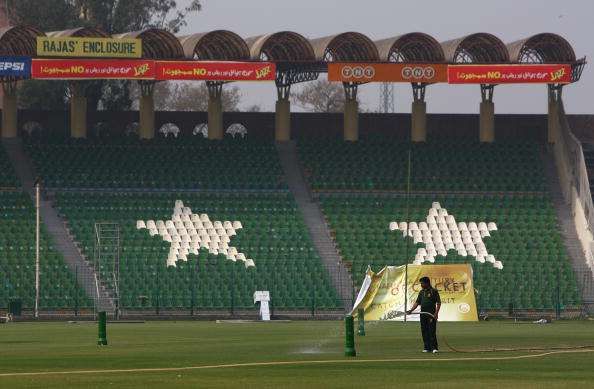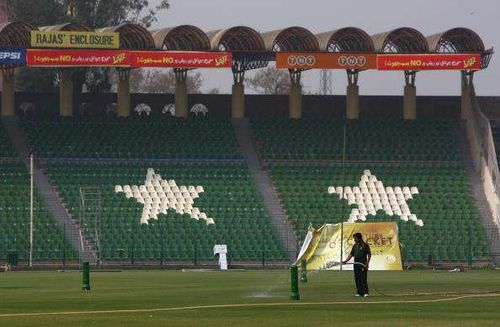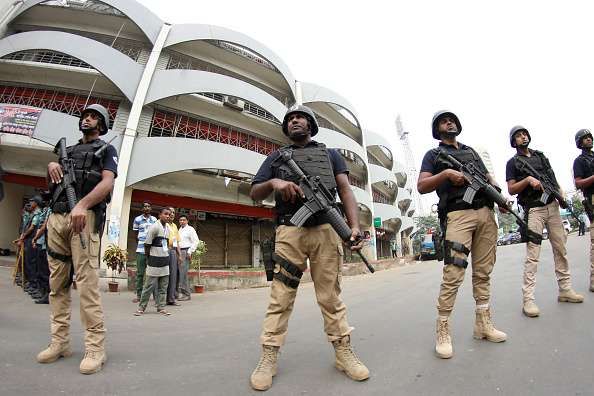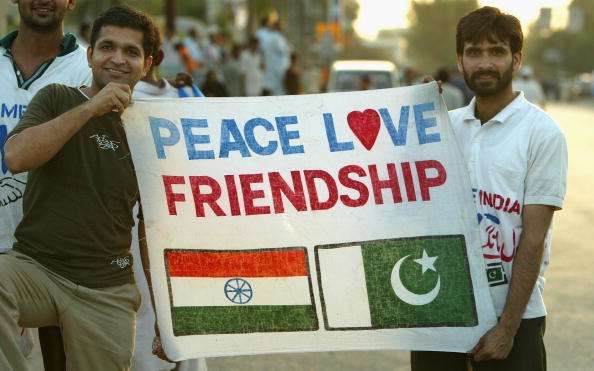
Is Bangladesh becoming the next Pakistan in terms of safety?
Forlorn pitches, bereaved fans and constant disparage – the cricketing nations Pakistan and Bangladesh seem to be sailing in the same boat, that of an uncertain future of cricketing diplomacy. Political tension in both the cricket-crazy countries has been interfering with the game.
Pakistan, barring the series against Zimbabwe in May 2015, has not hosted any international matches since the devastating terrorist attack at the Karachi airport in March 2009. The men in a lighter shade of green, on the other hand, have not been totally denied the right to host international games. But from the looks of the current state of affairs in the country, only time can tell if its 22 yards will turn desolate or otherwise.
What triggered the downfall of Pakistan cricket?
On an unfaithful March 3, 2009, Pakistani cricket suffered a brutal blow when the bus carrying the Sri Lankan Test team was attacked by militants near Lahore's Gaddafi stadium, precipitating an odyssey for the men in dark green, who unwillingly have had to make the UAE their cricketing home turf for most of their home matches. The 2009 attacks left eight people dead and seven visiting players wounded.
This tragic incident occurred at the height of the native militants' fight against the Islamic state, triggering the suspension of all forms of international cricket in Pakistan. Defensively, no team thereafter has wanted to risk their life playing in Pakistan. And the return of cricket in their neck of the woods seems unfavourable.
In June 2014, fans in Pakistan were hopeful of a return to normalcy by hosting the exhibition Twenty20 tournament. But the country’s efforts were hurt once again when Herschelle Gibbs of South Africa and Jacob Oram of New Zealand declined the invitation to play in the league.
Also read: England's Barmy Army won't travel to Bangladesh
Over the years, the 1992 World Cup winning country has transformed into a ‘no-play’ destination for international cricket. Earlier, in 2008, the Australian Cricket team scrapped its trip to Pakistan owing to safety issues. In 2002, Australia played a three Test match series with Pakistan, but only on the condition of meeting them in the United Arab Emirates.
New Zealand had also cancelled its ongoing tour of Pakistan in 2002 following a bomb blast outside the team hotel in Karachi. In the same year, Bangladesh backed out twice after agreeing to tour, declaring on both occasions that Pakistan was unsafe. The Dhaka High Court issued a court order that banned Bangladesh from touring the war-torn country.
Eventually, to not let Pakistan cricket degenerate, the venue for holding home matches was shifted to the UAE with the cricket boards of test playing countries agreeing to send their team there to play against Pakistan. UAE has previously hosted Pakistan Vs Australia, Vs West Indies, and Vs Sri Lanka. The country’s struggle to sustain its legacy was further visible when it was not permitted to host the 2011 Cricket World Cup even though all the other South Asian countries had the permission to host it.
It is thus clearly visible that the Karachi airport attacks have completely spooked teams across the world.
Is Bangladesh becoming the next Pakistan?
If not at level, Bangladesh does not lag too far behind Pakistan when it comes to the uncertainty of cricket flourishing in its home. And the recent England-Bangladesh conundrum stands as a proof of this.
After successfully hosting the Asia Cup and the Under-19 World Cup earlier this year, Bangladesh playing hosts to international teams is again becoming an issue, as seen before too.
The future of the upcoming England tour of Bangladesh was thrown into doubt when an attack in the capital city Dhaka led to the killing of 20 people, including nine Italian citizens. Although the visitors are set to go ahead with the tour, Eoin Morgan and Alex Hales have found themselves in the eye of a storm after refusing to take part in the tour over security concerns.
The England ODI skipper, when explaining his concerns, included India too in the list of countries he is scared to tour.
“In 2010 we played an IPL game in Bangalore, and a bomb went off in the ground," he said. "We immediately left and went straight to the airport. Another [instance] was [in] Bangladesh, playing domestic cricket during political elections - where things were incredibly violent. I think ultimately, as an individual, you need to be comfortable within yourself to be able to focus on cricket. I have been to places before when things have become a distraction - and once or twice when that has been security. I told myself I would not put myself in that situation again."
Morgan is clearly not wrong in his apprehensions, but it is difficult to classify any country or place as ‘safe’ or ‘unsafe’ because you are never really safe anywhere in the world these days. The decision to not tour might cost Hales his Test match place and Morgan his future captaincy, but both are resolute. And this only further explains the picture international cricketers now have of Bangladesh, much like how it has always been regarding Pakistan.
Also read: Kevin Pietersen: Eoin Morgan’s decision to pull out of Bangladesh tour ‘courageous’
This was not the first time when political turmoil resulted in match/tournament cancellations in Bangladesh. In October 2015, Australia had cancelled their tour of Bangladesh over security reasons. The Australian team was warned by the government of harm to Australian interests in Bangladesh which resulted in the abandoning of the tour.
This was triggered after an Italian charity worker was shot dead few days before the schedule of the tournament. Bangladesh was going to play Test cricket against Australia after nine long years.
The South Africa women’s tour of Bangladesh was also suspended in October 2015. The atmosphere in the country had been filled with uncertainty due to the assassination of an Italian and a Japanese national in two separate assaults which reportedly were believed to have been carried out by the Islamic State of Iraq and Levant, a very dreaded terrorist group.
Bangladesh, slowly but definitely, seems to be falling under the same terror-struck zone as Pakistan.
The deprived fans
That the public in Bangladesh and Pakistan is fanatical about the game and go into a frenzy each time there is a big-ticket match is common knowledge. That the political scenario in both the countries does not look too promising for an impregnable future of cricket is also evident. But does any country in the world come with an unerring security tag?
We have seen political turbulence in the UK Australia and South Africa as well, if we are to focus only on the cricket-playing countries.
While other countries are apprehensive about their safety in Pakistan, toppers of the Test Cricket Rankings showed a positive slant in their decision to play the Indian Team in India despite security threats earlier this year. Although the match was shifted from Dharamsala to Kolkata, there were murmurs of a threat in the Eastern part of the country too. But that did not hinder the India Vs Pakistan World T20 match, which unfolded smoothly.
The subcontinent, in particular, may not be a riskless venue for cricket. But no security ever is too foolproof. No country is ever too safe. At the end, cricket and its fans are at the losing end.
For at least the sake of cricket, can harmony live?


